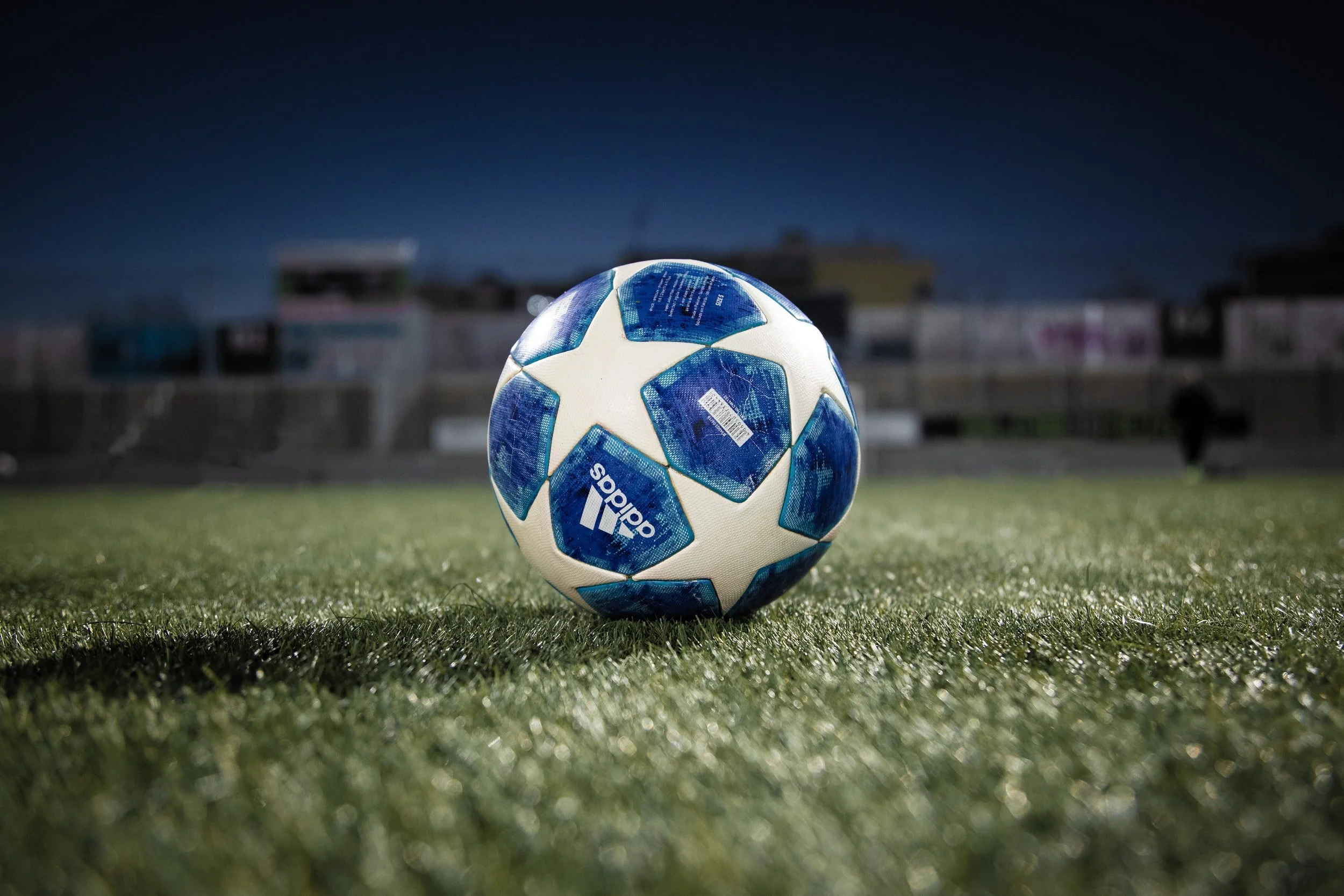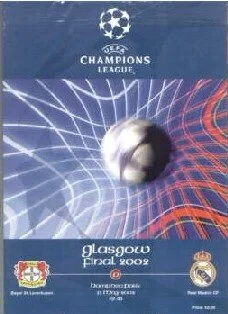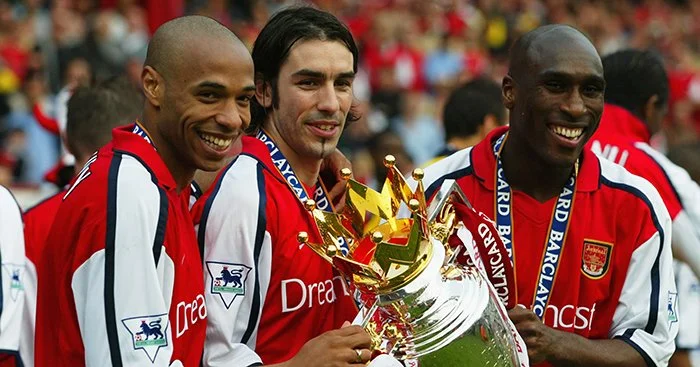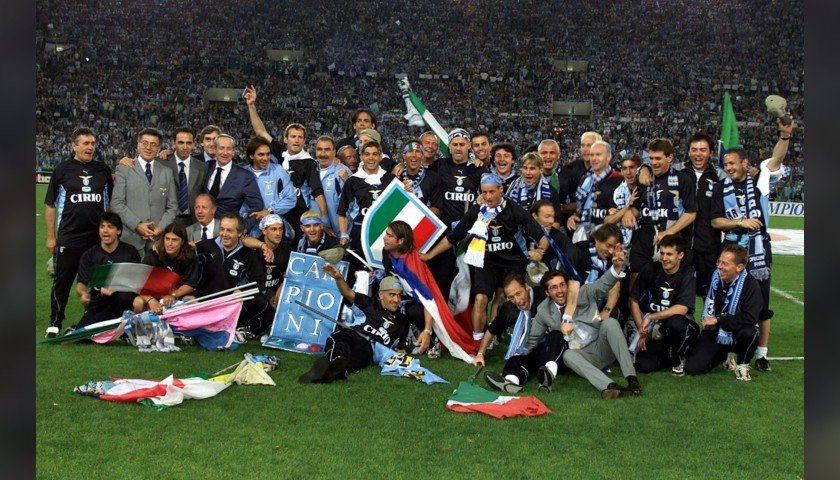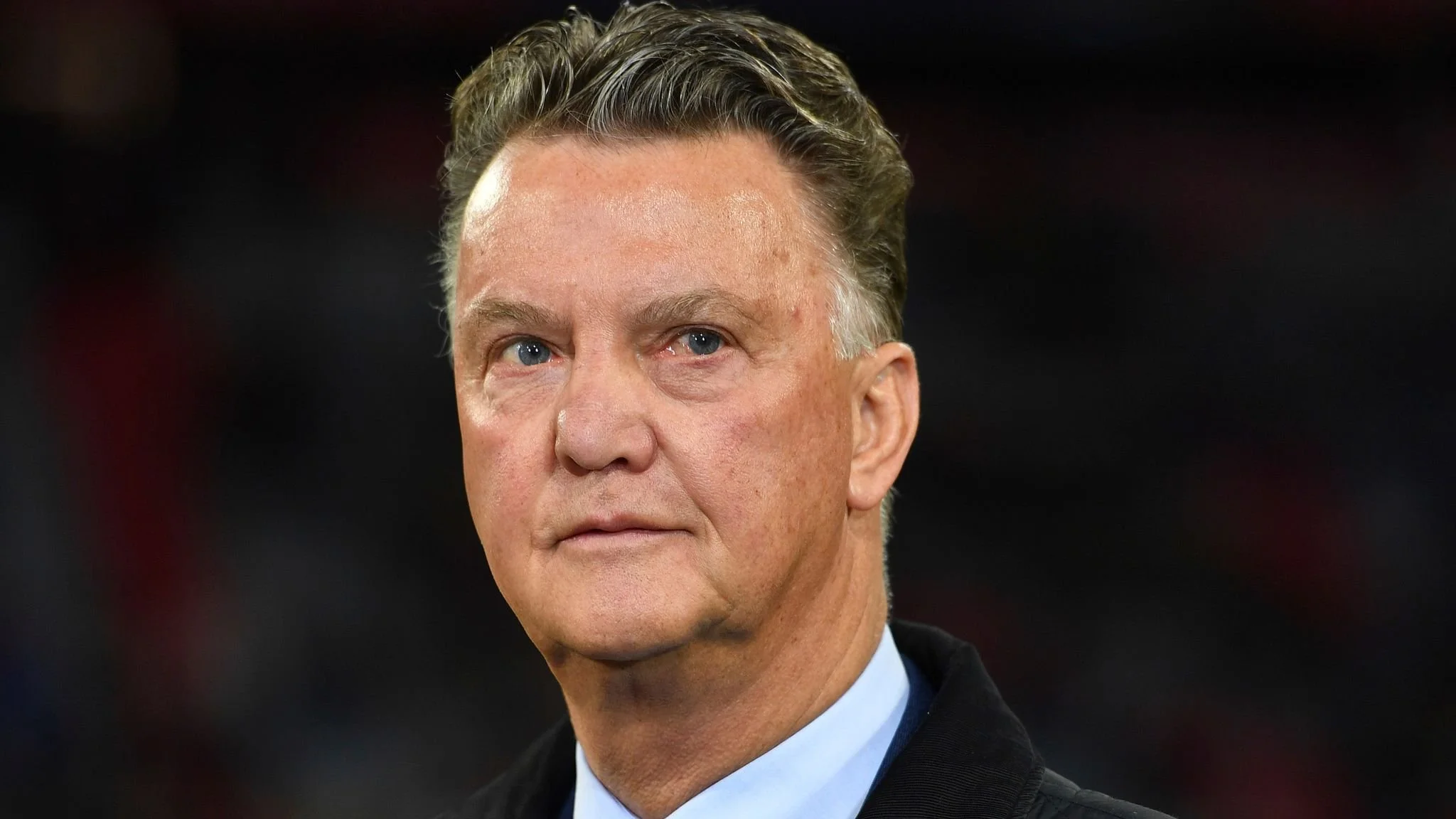How the 2001/02 season changed football
The 2001 football awards season saw a notable divergence in who was judged to be the best player in the world. Michael Owen was awarded the Ballon d’or, but when it came to the glitzier FIFA awards in Zurich Owen placed a distant 8th. Similarly, while Luis Figo was rated top according to FIFA, when it came to the prestigious France Football award the Portuguese star finished only 6th. In the Champions League Bayern Munich had for the last two seasons been a bellwether team. If a team wanted to win the Champions League they had to first find their way past the suffocating German side short on stars but long on Champions League expertise. In 2001 however, Bayern fought off the two previous winners, Manchester United and Real Madrid, in successive rounds to claim the title for themselves after beating Valencia on penalties in a forgettable final. The following summer at the World Cup, football’s state of ambiguity continued. One by one the established nations fell by the wayside. Holders France and favourites Argentina were knocked out in the group stage alongside a strong Portugal side led by Figo himself. Italy and Spain were beaten by South Korea in the second round and quarter final respectively. Instead of the familiar powers, the quarter finals were populated by the unexpected South Korea, USA, Senegal and Turkey teams. While ultimately Brazil did prevail as World Champions, it had been a tournament of shocks. Football at the highest level was looking increasingly uncertain. In-between Bayern’s Champions League win of 2001 and Brazil’s World Cup triumph the following summer, a series of events took place that drastically altered the course of football history.
On July 5th 2001 Zinedine Zidane signed for Real Madrid in a move that Marca describes as having ‘changed Real Madrid’s history.’ Zidane was initially approached by club president Florentino Perez at a Champions League gala via a napkin asking him if he wanted ‘to come and play in Madrid.’ When Zidane joined Real on the 9th July 2001 the Galacticos were born. While Luis Figo had signed from Barcelona the previous summer, the arrival of Zidane cemented the policy of ‘Zidanes y Pavones’ that saw Real sign a world superstar every season supplemented by ‘canteranos’ from the youth system such as Pavon. Zidane would go on to score the winner in the Champions League final the coming season and would be followed by Ronaldo (2002) and David Beckham (2003). Zidane became an icon of Real Madrid and would return as manager to win three successive Champions Leagues from 2016-2018. At a similar time that Zidane was being proposition by Perez, perhaps a more monumental napkin was being passed across a table in Barcelona. In December of 2000 the father of a young player Barca had been tracking threatened to take him elsewhere. Club executive Carles Rexach took matters into his own hands. ‘Once in Barcelona, I decided to sign him on a paper napkin that a waiter gave me because I couldn't let him get away.’ That young player was Lionel Messi. Initially Messi was unable to play for Barcelona’s youth teams due to contract wrangling with Newell’s Old Boys. Finally in February of 2002 he was enrolled by the Spanish Football Federation and the road to four Champions League titles had begun.
On 11th April 2001 Pep Guardiola called a press conference to announce the 00/01 season would be his last at Barca. Guardiola had according to Jonathan Wilson, ‘become frustrated…with what he saw as the growing physicality of football…As Guardiola saw it, the drift away from the Dutch style of football [At Barcelona] risked repeating the problems of the past.’ In September he would sign for Brescia stating ‘I wanted to play with [Roberto] Baggio.’ This began a journey for Guardiola that would help shape him as a manager. He would go on to be coached by Carlo Mazzone, Fabio Capello at Roma and crucially Juanma Lillo in Mexico, who is now Pep’s assistant manager at Manchester City. Lillo, who Guardiola refers to as ‘my maestro’, had a profound impact on Guardiola’s career. As Sid Lowe describes Lillo is ‘deeply committed to a positional game and with a reputation as a philosopher.’ Jonathan Wilson states that, ‘in terms of the manager he subsequently became it was Lillo who became the most significant influence’ on Guardioa. Guardiola would return to manager Barcelona where he would win two Champions League and change the landscape of football tactics with his own brand of positional play. ‘While we attack…the idea is to always keep your position…there is dynamism, mobility, but the position has always to be filled by someone.’
Following Valencia’s defeat in the Champions League final in 2001 manager Hector Cuper departed the club to take over at Inter Milan. In his place Valencia gave a young Rafa Benitez his first big managerial job. Benitez had led Tenerife to promotion from the Seguanda Division the previous season and would go on to win two La Liga with Valencia and a Champions League with Liverpool.
In the Premier League similar change was developing. In April of 2001 after being knocked out by Bayern Munich, Roy Keane in one of his customary explosive interviews with MUTV stated, ‘The players gave it their all tonight but we are just not good enough and maybe it's time to move on…maybe it's the end of the road for this team…we need to step up a level in Europe.’ United had finally clinched European success in 1999 with a cavalier style of 4-4-2 relying on improbable comebacks and exciting wing play. While they had remained comfortable in the Premier League by winning the two subsequent titles, in Europe they were knocked out in successive seasons by more possession orientated, sophisticated teams. Alex Ferguson appeared to agree with Keane’s assessment, ‘we were trying to alter the way we played in Europe…we played the traditional United way, 4-4-2 and got thumped. I told the players and staff that if we could not keep the ball better and stay solid in midfield, we were going to suffer.’ Ferguson moved to break up the famous midfield of Giggs, Scholes, Keane and Beckham by signing Juan Veron for £28.1 Million in the summer of 2001 from Lazio. ‘We switched to playing three in the centre of the park. Veron was part of that development.’ Ferguson also spent big on Ruud Van Nistelrooy that year and the following pre season recruited Carlos Quieroz as assistant manager. Quieroz would prove crucial to establishing a new style of football for United. As Jonathan Wilson notes Quieroz ‘influence…led to United becoming far cagier’. This had been a ‘different United. The cavalier days of old were gone…United’s progress was predicated on solidity’. While they only won one of the next five Premier League titles, the change in thinking evidenced by Ferguson that summer would prove crucial to the regeneration of United. This new approach led to the Champions League win of 2007/08, which was supplemented by three successive Premier League wins.
Arsene Wenger was approaching the culmination of his rebuild at Arsenal. As Patrick Vieira states ‘slowly but surely players had been brought in who would revolutionise the way in which we played…the team was very different. Gone was the long ball; in came quick accurate passes to players feet.’ In the summer of 2001 centre back Sol Campbell signed for Arsenal. Inspirational captain Tony Adams was now restricted to ten Premier League appearances as a new Arsenal emerged. With Lauren establishing himself as first choice right back Arsenal now had a defence consisting of Ashley Cole a former winger, Lauren who had been a midfielder before he signed for Arsenal and Campbell who had spent much of his time in youth football as a striker. As Phillipe Auclair states, Wenger ‘had visions of a team that was also able to build from the back…in which the heart of the defence could beat to the same pulse as their more creative team mates.’ Arsenal had moved away from the famous back four and began a period of dominance of English football, flourishing in the invincible season of 03/04. Starting in 2001/2002 they won two Premier Leagues and two FA Cups in three seasons. 2001/02 was also the first of Thierry Henry’s four Premier League golden boots.
Across London in the summer of 2001 Chelsea made a signing that would have similarly seismic effects on their future. On the 14th of June Frank Lampard joined from West Ham for £11 million. Lampard would go on to become Chelsea’s all time record goal scorer, winning three Premier Leagues and a Champions League. Lampard credits him not making the England World Cup squad in 2002 as the catalyst for a desire for self-improvement that led to the ‘the pivotal period of my life.’ As a side note 2001/2002 also proved to be future Chelsea and Champions League winning manager, Roberto Di Matteo’s last season as a player. Di Matteo spent his last season at Chelsea before retiring.
While Calcio had dominated football in the 1990s,the 2000s marked a period of change in Serie A. For Juventus the summer of 2001 saw the return of Marcello Lippi who had originally departed in early 1999. Juventus had not won Serie A since he had left the club. The revival of Lippi, alongside the signings of future Ballon d’or winner Pavel Nedved and Gianluigi Buffon, who now holds the Juventus record for most Serie A appearances, was enough to clinch the next two titles. Over at AC Milan, I Rossoneri completed the deal to bring Andrea Pirlo from city rivals Inter on 30th June 2001. Pirlo would go on to make 401 appearances for the club and win two Champions Leagues. After a poor start to the season Carlo Ancelotti was appointed manager on 5th November 2001. Ancelotti would stay until 2009 where he would win two Champions League titles alongside Pirlo.
2001/2002 also marked the end of the era of the ‘seven sisters’ of Serie A, Juventus. AC Milan, Inter Milan, Roma, Lazio, Fiorentina and Parma who had dominated Italian football since the mid-90s. In 2000/01 six of the sisters accounted for the top six of Serie A and the seventh, Fiorentina won the Copa Italia. In June of 2001 it was revealed Fiorentina were $50million in debt. La Viola were forced to declare bankruptcy and were liquidated in August of 2002. A new team, Florentia Viola was formed in their place starting in Serie C2. While the share price of Parma’s owners, dairy company Parmalat, hit a record high in April of 2002 it has since been discovered that from 2001 many divisions had been making losses as a result of bad investments and the company were desperately hiding their debt. The sales of Buffon and Thuram to Juventus in the summer of 2001 were the first signs that the dairy funded Parma fairy story was stalling. By the end of 2002 all the players who had started the 1999 UEFA cup final win had moved on. Parma slumped to tenth place in 2001/2002 and entered administration in 2004. The success of Lazio had similarly been a miracle based on food produce. The owner of Cirio food brands Sergio Cragnotti had funded an eye watering spending spree at Lazio which had saw them crowned Serie A Champions in 1999/2000. In 2002 however the Cirio company defaulted on its bonds forcing Cragnotti to leave the club who were as a result put into the hands of a team of caretaker financial managers until 2004. Lazio were forced to sell their star players, including club captain Alessandro Nesta in 2002. With three of the big spending seven sisters severely weakened Italian football became a very different place. Exasperated by the Calciopoli scandal of 2006, Serie A has been characterised by a series of dynasties leaving Calcio a less vibrant experience. Juventus won (later 04/05 & 05/06 were rescinded) four of five Serie A from 01/02-05/06, followed by four in a row by Inter. This was punctuated by a brief Ibrahimovic inspired Milan in 2010/11 before Juventus embarked on their current run of nine in a row.
In Germany Champions League and Bundesliga holders, Bayern Munich regressed in 2001/02 to what has proved to be their second worst season in the last 25 years. Bayern’s response was to replace one midfield general, UEFA club footballer of the year 2001, Stefan Effenberg with another in Michael Ballack, UEFA Club midfielder of the year in 2002. Elsewhere in Germany however more radical changes were afoot. In 2002 the Extended Talent Promotion Program was launched by the German FA at an initial cost of €48 million a year. It was also made mandatory that in order to gain a license to run a professional football club in Germany clubs must run build or maintain a centre of excellence. Rules were imposed regarding how many coaches the clubs had to employ and how many players eligible for the German national team had to be in squads. This revolution of German youth development has been key in bringing about a German football renaissance which culminated in the World Cup win of 2014, the all German Champions League Final of 2013 and Bayern’s triumph in the 2020 Champions League.
Elsewhere in Germany Jurgen Klopp was making his first tentative steps in his managerial career. Klopp had spent almost the entirety of his playing career at Mainz and was appointed as manager on 27th February 2001. 2001/2002 represented Klopp’s first full season in management as he implemented his counter pressing tactics to see Mainz surge from 14th the previous season to 4th place. Klopp’s interpretation and promotion of pressing has been just as vital and influential as Guardiola’s positional play. Indeed as Jonathan Wilson notes, Klopp’s counter pressing can provide an antidote to Guardiola’s footballing domination. ‘It’s perhaps no coincidence that no manager has troubled Guardiola as much as the arch exponent of Gegenpressing, Jurgen Klopp.’ Klopp has to date won two Bundesliga with Dortmund alongside a Premier League and Champions League with Liverpool.
In the Netherlands 2001/2002 proved to be a traumatic year. In 2001 the Dutch side coached by Louis Van Gaal failed to qualify for the 2002 World Cup. Van Gaal and Cruyff had together, albeit with different interpretations, been instrumental in taking the Dutch concept total football into a new era. Cruyff as manager of Ajax had inspired a generation of young players in who would prove key to winning the European Championship in 1988, before departing to Barcelona, where he won a European Cup in 1992 and lay the groundwork for Guardiola’s revolution. Van Gaal had taken a young Ajax team to Champions League glory in 1995 with a more structured interpretation of the Dutch style. Whereas Cruyff valued personal freedom, Van Gaal undoubtedly displayed a ‘risk averse emphasis on maintaining possession’, Jonathan Wilson however notes ‘their disagreements could, at times, seem like Marxist theorists squabbling over obscure minutiae of doctrine.’ Van Gaal returned to manage many of the same players as his Ajax team in 2000 as the Holland national team manager. Van Gaal’s side however failed to get out of a tough qualifying group for the World Cup containing Portugal and Ireland. Van Gaal subsequently resigned stating, ‘I had the ambition of becoming world champion…But we didn’t even make it to the tournament.’ This failure appears to have scarred Dutch football and it’s view of itself. Jonathan Wilson states that ‘the classic Ajax style had been assailed by doubt. Realism had become the new mode.’ Simon Kuper attributes this realism as a response to the trauma of ‘ het drama van Dublin. ‘ While welcoming a promising generation containing Wesley Sneijder, Arjen Robben, Robin Van Persie and Rafael Van Der Vaart, Holland were unremarkable in Euro 2004, save for a thrilling group stage loss to Czech Republic. In World Cup 2006 they were known mostly for losing the ‘battle of Nuremberg’ against Portugal where four players were sent off. In Euro 2008 the Dutch started strongly, playing largely on the counter attack in beating Italy and France, before succumbing to a Russian side managed by Guus Hiddink, who arguably better demonstrated the virtues of Dutch football. This pathway culminated in the World Cup of 2010 where the Dutch reached the final on the foundation of the brutal double pivot of Mark Van Bommel and Nigel De Jong. After watching Spain beat Holland in that final, Cruyff accused the Dutch of ‘renouncing their style’ and choosing ‘an ugly path to aim for the title…playing anti football.’ Even when Van Gaal himself returned as manager in 2012, far from employing the traditional Dutch 4-3-3, he reached the semi final of World Cup 2014 playing a 3-5-2 built on counter attack. As Wilson states ‘it was not Total Football, nothing like it, but it was successful.’ Van Gaal himself had in the meantime had a successful spell at AZ Alkmaar where according to Wilson ‘there was a widespread assumption that Van Gaal was finished…he was pragmatic enough to realise that the press and possess Ajax method was impractical at a club with such limited resources.’ After Van Gaal left the national team to take the Manchester United job, the Netherland missed out on Euro 2016 and World Cup 2018. It is hoped that a new Holland team built on the thrilling young Ajax team of 2018/19 can enable the Oranje to shake off their 2001 neurosis.
In Portugal Jose Mourinho took over as manager of FC Porto on 23rd January 2002 with Porto 5th in the league. Mourinho had impressed the Porto hierarchy in his interview by showing a powerpoint presentation of his ‘bible’ which in Mourinho’s words ‘guides and directs an entire process.’ Within two and a half years he had won two Liga titles, a UEFA Cup and the Champions League. Mourinho has gone on to be one of the most successful managers in European history, winning three Premier League’s with Chelsea, two Serie A and a Champions League with Inter Milan, and a La Liga with Real Madrid. Mourinho also provided a tactical counterweight to the Guardiola revolution and for a time the two represented the twin peaks of world football when Guardiola was at Barcelona and Mourinho was managing Inter Milan and Real Madrid. 2001/2002 also represented an early blossoming of Cristiano Ronaldo. Ronaldo was promoted to the Sporting Lisbon youth team in 2001 and made enough progress to play for Portugal in the 2002 European Under 17 Championships and make his full debut for Sporting soon after in October 2002.
In Brazil 2001/2002 marked landmark a landmark season for two future Ballon d’or and Champions League winners. Ronaldinho first moved to Europe in 2001, signing with PSG for the start of the 2001/2002 season. By the victorious World Cup of 2002 Ronaldinho was a key member of the Brazil team. Joining him in that World Cup Squad was Kaka who had made his full debut in February of 2001, quickly making enough of an impression to join up with the Seleção. 2001/2002 saw the start of the Lyon dynasty in France who went on to claim 7 Ligue Une titles in a row. In the process developing the careers of several future stars.
It is possible to trace the roots of every subsequent Champions League title through to the events of 2001/02, from the emergence of new managerial philosophies and emerging players to the fundamental changes to the structure of football in Germany and Italy. The events of this year have shaped football and it is perhaps not overstating the case to call 2001/02 as one of the most important seasons in modern football history.
Ben Jones, The Left-sided Problem
